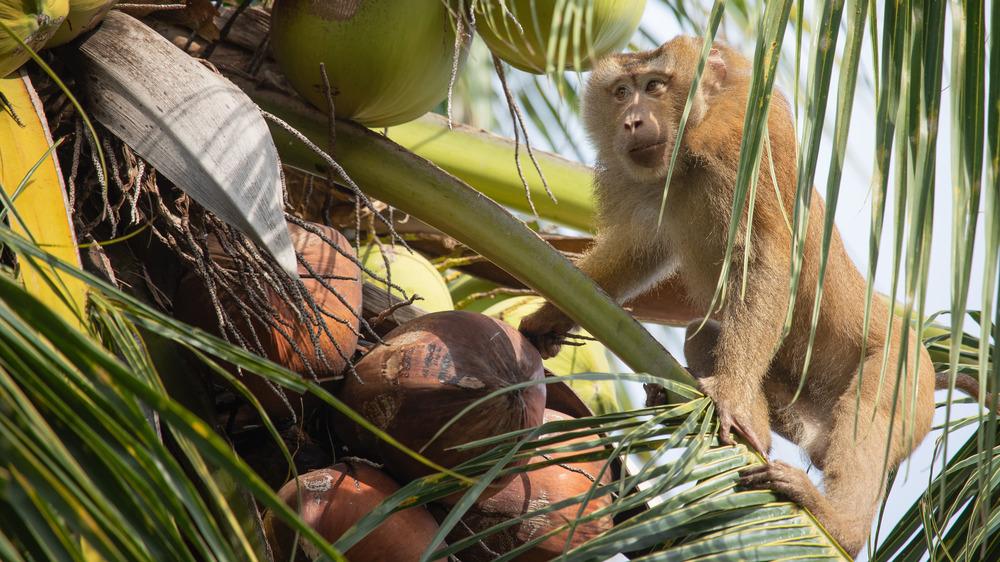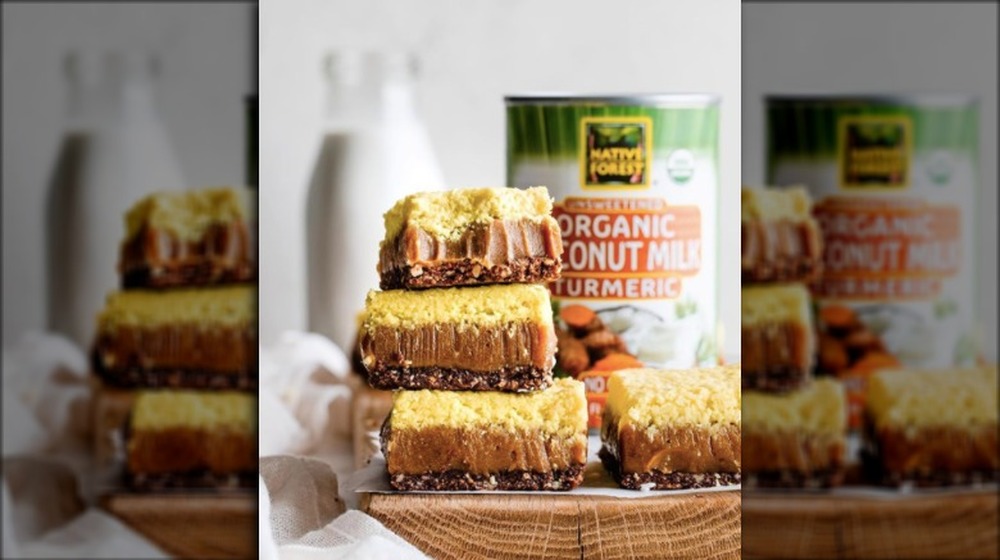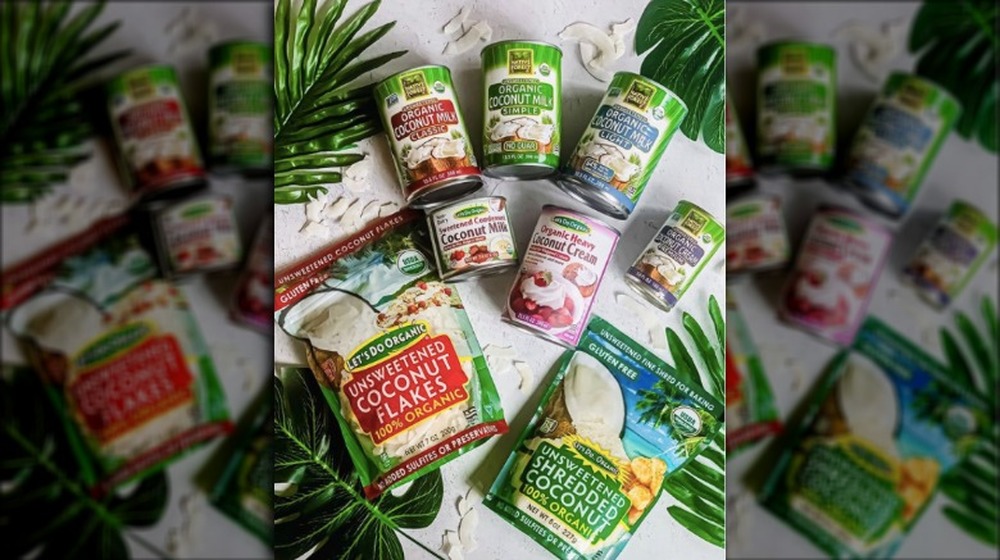Why These Coconut-Harvesting Monkeys Are Causing Such A Stir
You might have heard rumblings a few weeks ago about large grocery retailers dropping a certain brands of coconut milk. The elimination of the product was based on an investigation that came from PETA Asia that found the use of young monkeys who were trained and forced to climb trees to pick coconuts in Thailand. These coconuts were then used to make coconut milk, meat, flour, oil, and other products (via PETA).
The allegations came from a whistleblower from one of the farms supplying Chaokoh with coconuts. PETA in turn called for the brand to be removed from stores since customers buying Chaokoh products would inevitably support the practice, even if they were unaware. In response, Costco, Walgreens, Food Lion, Giant Food, Wegmans, and Stop & Shop all stopped carrying brands of coconut milk from Thai suppliers that PETA has accused of using forced monkey labor (via USA Today).
Instead of the Thai coconut milk, PETA encouraged customers to buy from other coconut-growing regions like Brazil, Colombia, and Hawaii where more humane methods are used. The organization also asked for any Thailand-based coconut companies to provide evidence that they don't use forced monkey labor. However, many coconut suppliers in Thailand that are losing revenue feel they are being unfairly targeted, even if they use humane methods, according to a press release received by Mashed from brand Edwards & Sons.
Not all Thai coconut milk brands use animal labor
While it would be easy to simply stop buying all Thai coconut milk to make sure you don't support something so horrible, this actually hurts a lot of local laborers who do not abuse animals. Though it is perfectly understandable to be horrified by the idea of forced monkey labor, it's important to do your homework on any products you buy to ensure they are sustainable and ethical. One example of a brand who feels it should continue to be supported is Edward & Sons, which owns Native Forest, Let's Do Organic, and More Than Fair.
Edwards & Sons claims that harvesting coconuts using monkeys is not at all a widespread practice throughout Thailand, but rather a small minority of farmers using the old-world method. The brand asserts its commitment to the ethical treatment of both animals and people — that's why it says all the work that goes into its products, including the coconut-based ones, is done by professional human hands who are fairly paid for their work. The company states that its laborers use sharp saws or sickles on long poles to cut the coconuts from the tall trees.
Edward & Sons does more than just make claims
The brand truly lives up to its mission of supplying ethical, vegan products to consumers. "We are driven to provide new options to our health-aware consumers, while creating markets for our ethical organic farmers and packers around the globe. We're proud of our activities that protect native forests and support conversion from conventional to organic farming, which nourishes the environment while enhancing the well-being of everyone along the supply chain from farm to table," said Joel Dee, CEO and Edwards & Sons founder, in a statement. It's truly a company that puts what's best for the world, its employees, its suppliers, and its customers first. That's why even Edward & Sons heart of palm products are labeled as rainforest-friendly.
But if Edward & Sons' word isn't enough, they're also one of the companies that has been verified by PETA as a brand that doesn't use monkey labor. Their Native Forest, Let's Do Organic, and Nature Factor labels are all on PETA's approved list. Plus, Edwards & Sons have posted photos on the company website that show its employees hard at work harvesting coconuts – so you don't have to write off all Thai coconut products quite yet, just make sure you are prepared to shop smart and make educated decisions. It's an important step that's well worth your time to ensure your choices are sustainable and ethical.


